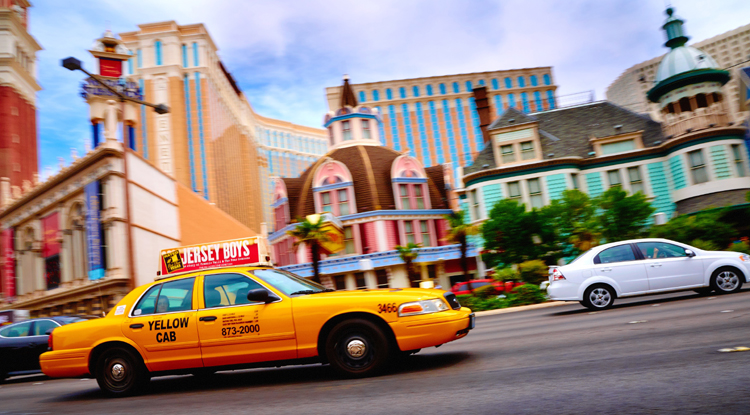The odds are that on your next trip to Sin City you will be taken for a ride before you even make it to the slots. An audit of the Nevada Taxicab Authority released on Tuesday showed customers of Las Vegas-area cab companies are being overcharged to the tune of $47 million a year.
In what seems to be another case of self-regulation gone wrong, auditors in the governor’s finance office say not only are taxi rates outrageous, but the authority-allowed $3 credit card processing fee is excessive compared with other cities and shouldn’t be more than 90 cents. The hike in a fuel surcharge even though gas prices are lower than they’ve been in years is also being criticized by auditors who say that among the 12 major Western cities that are tracked by the taxi board, having the surcharge at all is unique, according to the Associate Press. Auditors say the surcharge that was approved last summer by regulators is based on a federal average of fuel prices that is higher than the rates in Las Vegas. The taxi industry supported fee structure is designed so that when gas hits $3.25 a gallon the per gallon charge increases by a full 12 cents paid by customers, rather than a gradual increase dependent on the rise of gas prices, according to the audit.
Criticism from auditors comes just a few months after Uber and Lyft, two ride-hailing companies, began offering services in Nevada promising to be more convenient and easier on your wallet. That 5-mile ride tourists take from the airport to the Strip generates big bucks for the taxi industry, and last spring it fought hard but lost the battle against allowing the companies.
The fight to end the $3 credit card processing fee has been ongoing, according to union representatives for area taxi drivers. They say that the fee makes cab company’s richer while hurting drivers, who get no portion of the money. So critical of the Nevada Taxicab Authority were the auditors that they recommended doing away with the agency and turning the keys over to another agency. Ron Grogan, the taxicab authority’s chief said that recommendations would have to be discussed before any changes could be made. He also acknowledged the agencies struggle amid complex regulations and that it had probably outlasted its usefulness.
In the past, Las Vegas-area cab drivers have been criticized for running up the bill by taking passengers on a longer route than necessary to run up the bill. The process is called “long hauling” and it’s illegal. A state audit in 2013 found that almost one-fourth of all airport trips involved the practice. In one year alone the practice cost passengers an estimated $15 million.



